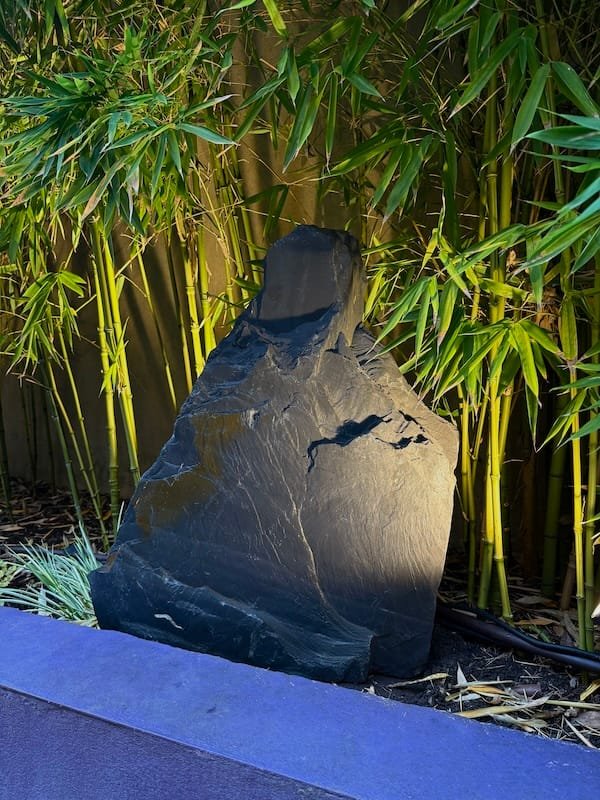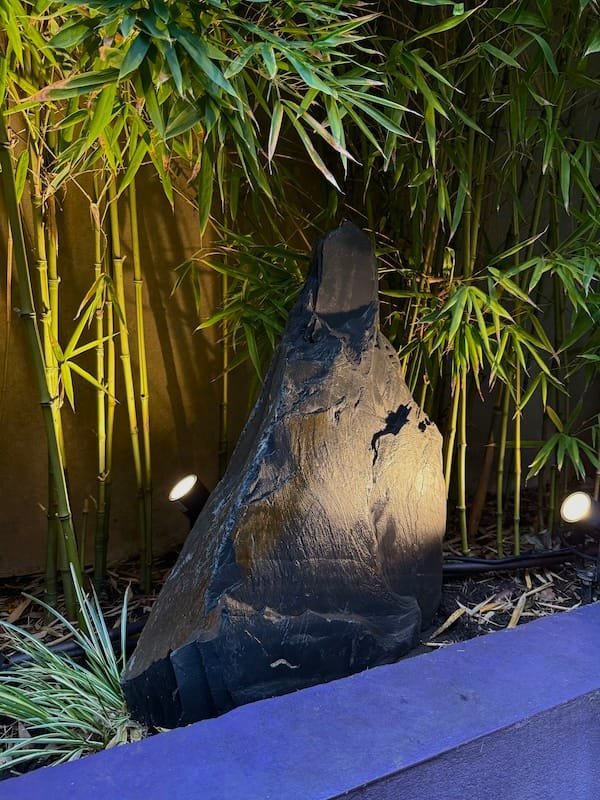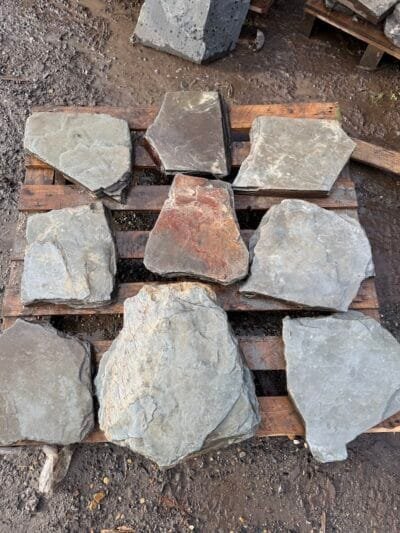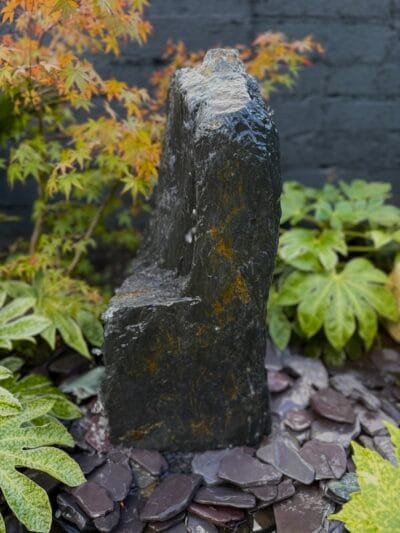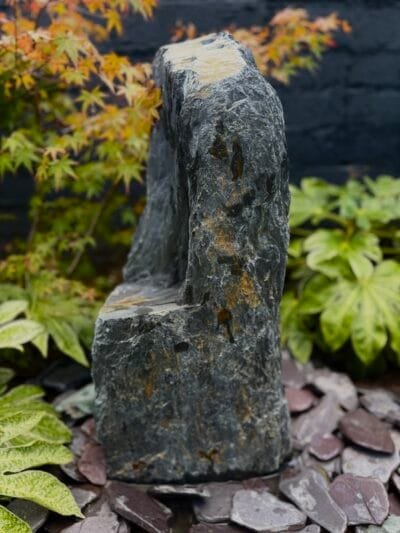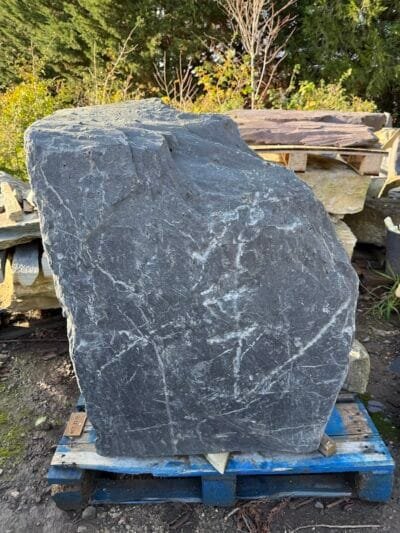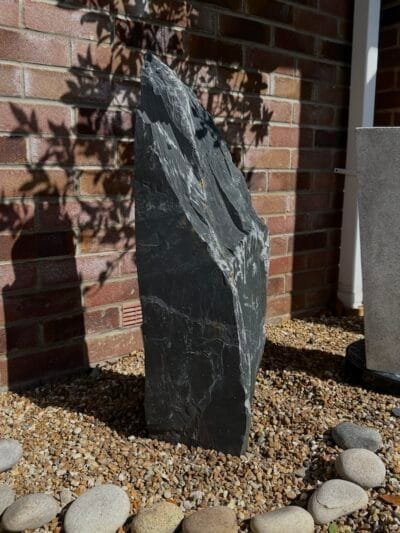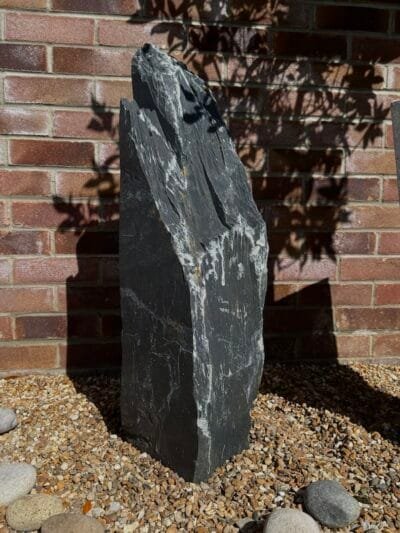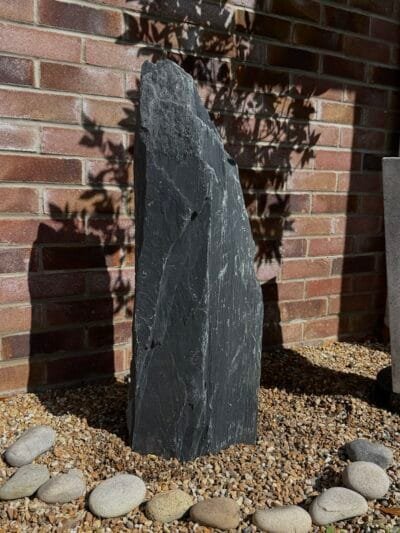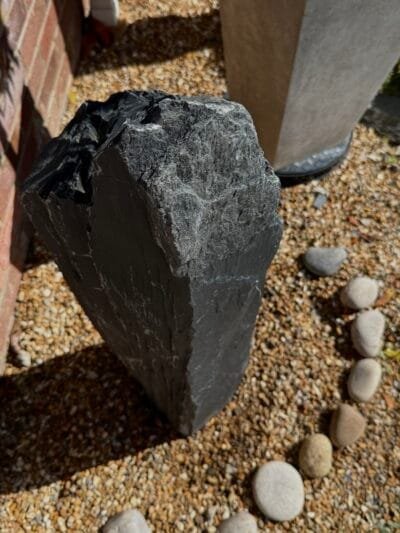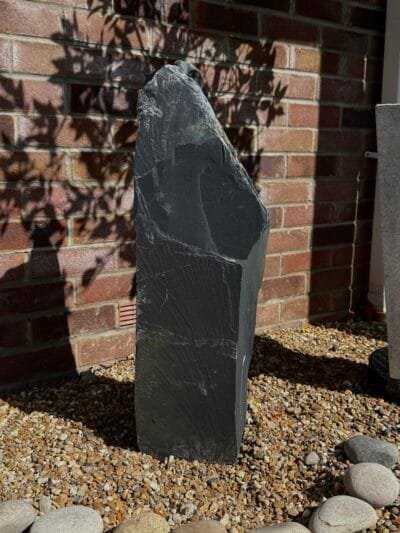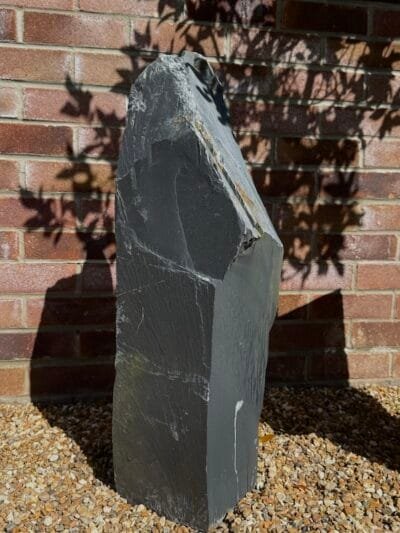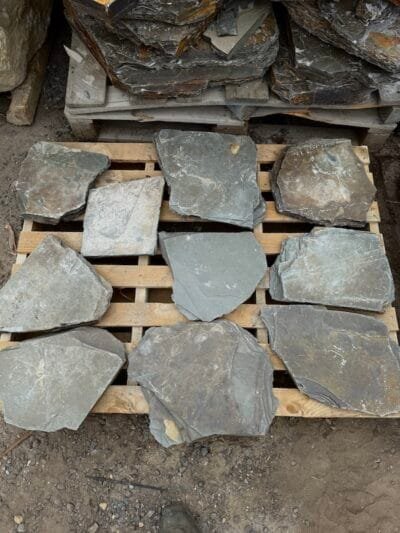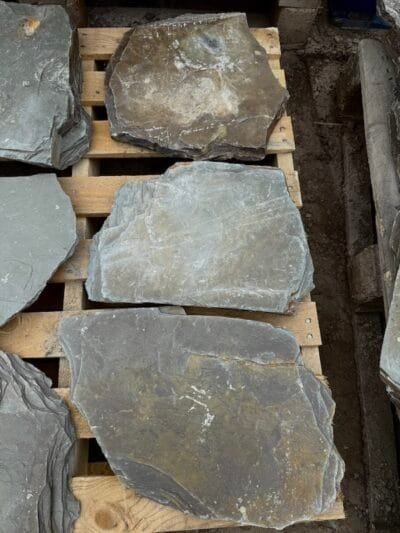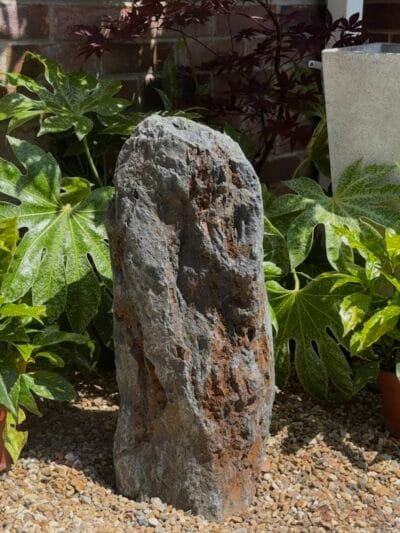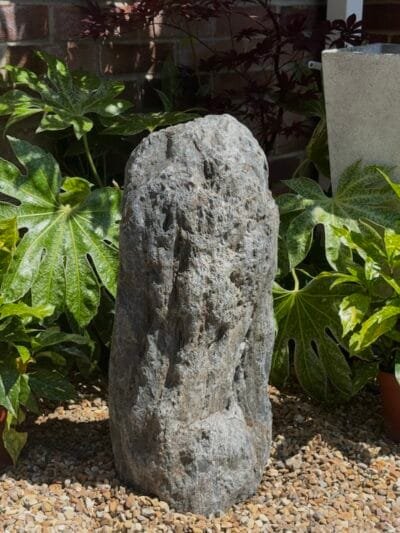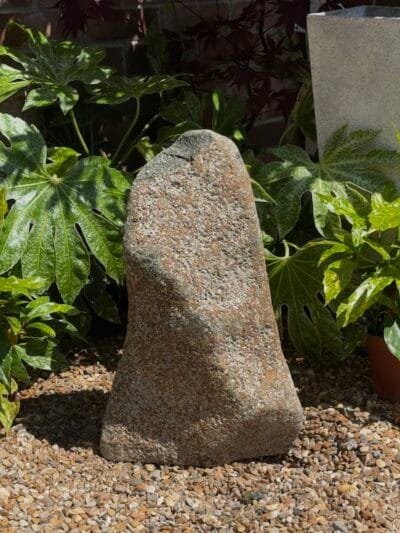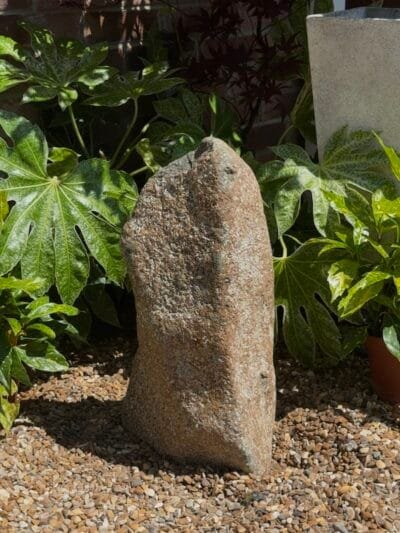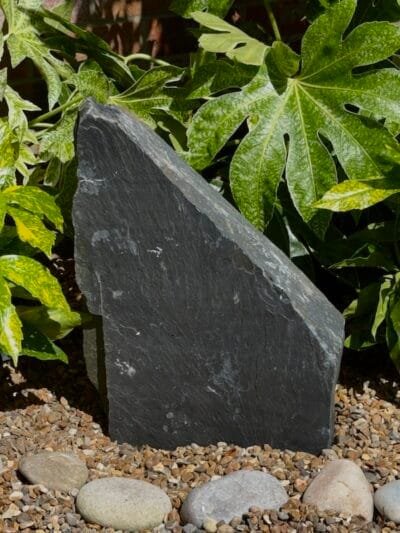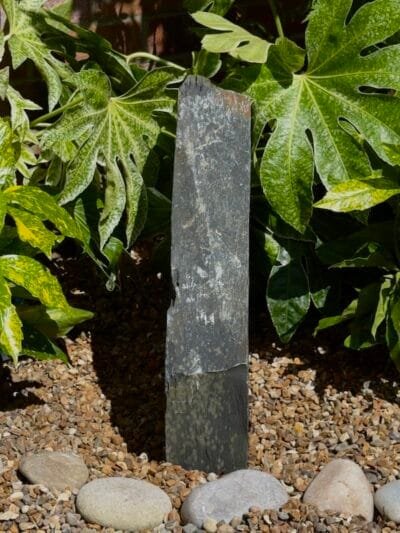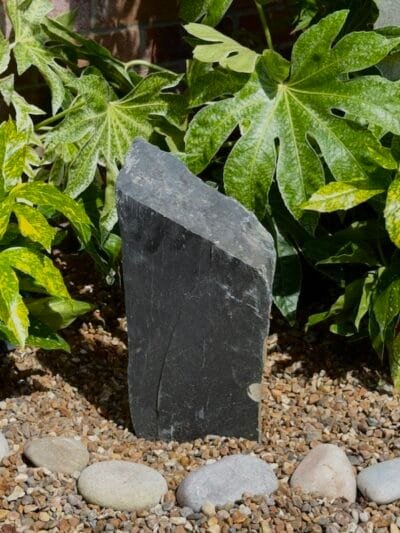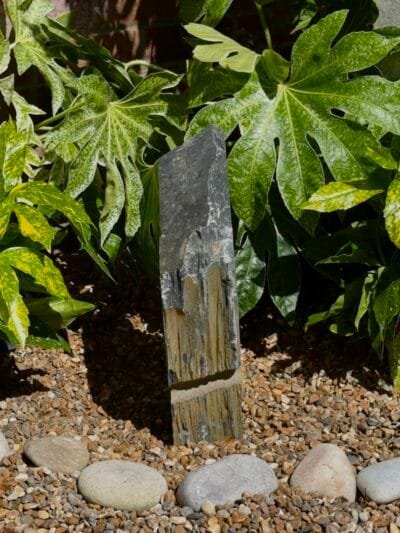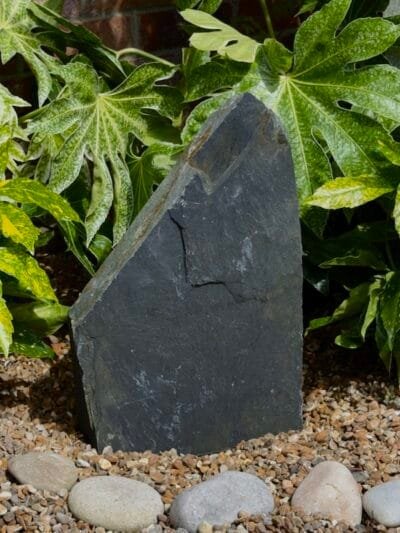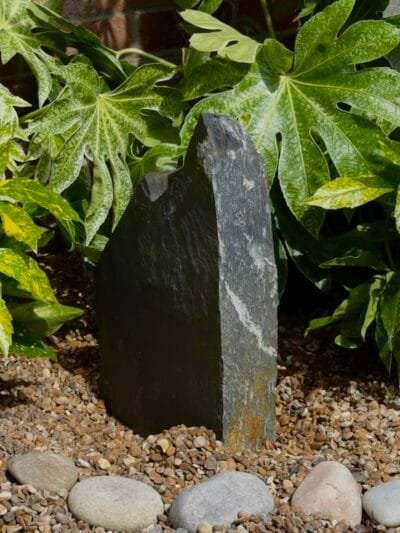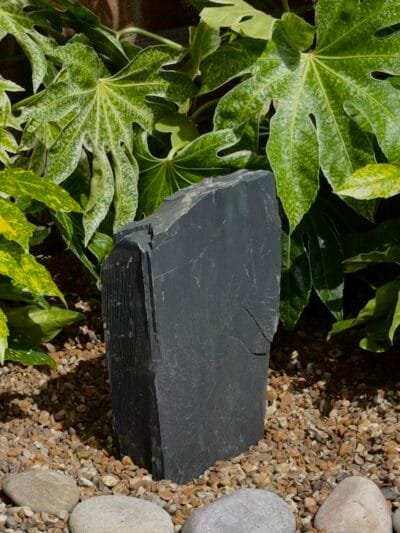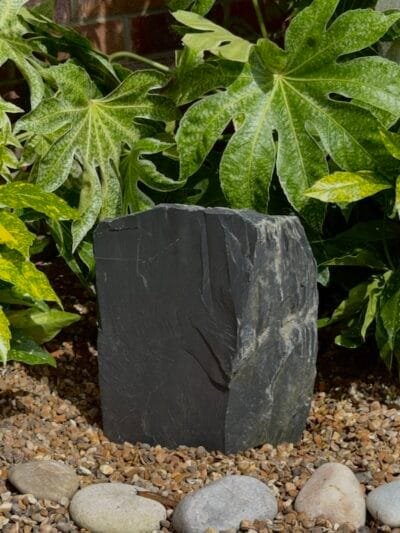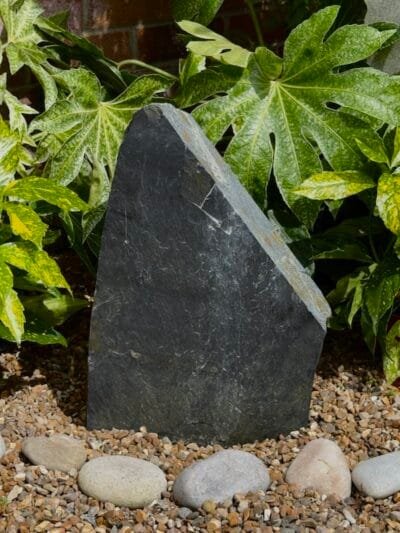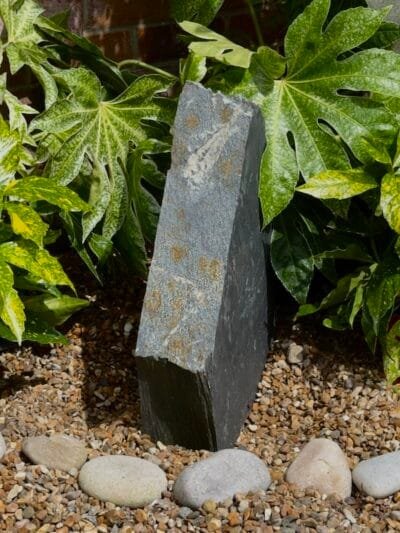Japanese Monolith JM9 Standing Stone Case Study: A Zen Garden in North London
Nestled in the heart of North London lies a tranquil escape from the city’s rhythm — a Zen Garden centred around a stunning Japanese stone monolith. This elegant installation blends traditional Japanese aesthetics with modern garden design, creating a space that evokes peace, balance, and natural beauty.
A monolith, in the context of Japanese garden design, is more than just a standing stone. It is a sculptural focal point — a symbol of strength, permanence, and connection to nature. In this North London garden, the monolith serves as the soul of the landscape, anchoring the design both visually and spiritually.
The Beauty of Simplicity
Japanese Zen gardens are founded on the principles of simplicity, harmony, and mindfulness. Every element — from the placement of the stones to the texture of the gravel — is chosen with care and purpose. The monolith, a tall and naturally shaped piece of stone, embodies wabi-sabi, the appreciation of imperfection and transience.
In this particular garden, the monolith stands proudly amidst a bed of smooth raked gravel, surrounded by low moss and carefully selected plants. Its weathered surface catches the soft light of dawn and dusk, creating a shifting play of shadows that transforms throughout the day. The design encourages reflection and stillness — an invitation to pause and breathe deeply.
The Craftsmanship Behind the Stone
The Japanese monolith was hand-selected for its natural form and texture. Carved from ancient stone, each mark and contour tells a story written over millennia. The installation process required precision and respect — the stone was positioned according to traditional Japanese garden principles, where balance and proportion are more important than symmetry. Site access was rather tight and this slate monolith had to be carefully moved into position.
To enhance the serenity of the space, subtle landscaping elements such as bamboo fencing for privacy, stepping stones that guide visitors down to the feature, and gentle mounds of grasses that echo the contours of a distant mountain. Subtle lighting enhances the space even further so this can also be enjoyed in the darker evenings.
The result is a landscape that feels timeless — a quiet corner of Japan brought to life in North London.
The Meaning of the Monolith
In Japanese garden philosophy, standing stones represent mountains — the meeting of heaven and earth. The monolith symbolises endurance and spiritual grounding, reminding us to stay centred amidst the constant flow of life.
The surrounding elements — gravel representing flowing water, moss symbolising age and persistence — all work in harmony to evoke a miniature natural world. Together, they create a peaceful sanctuary where the mind can settle and the senses awaken. The clients were inspired to create this amazing space after a vacation in Japan.
A Modern Oasis in the City
This Zen Garden in North London proves that you don’t need vast landscapes to achieve tranquillity. Even within an urban environment, thoughtful design and authentic materials can transform a small outdoor space into a serene retreat.
Whether admired from a window or experienced up close, the Japanese monolith stands as a quiet reminder of nature’s enduring beauty — a timeless centrepiece in a modern world.
Buy Slate Monoliths
We have a number of Slate Monoliths similar to Japanese Monolith JM9 Case Study in stock which can all be drilled, cut and dressed if suitable. This is our largest and most colourful and varied stock ever. Not all of our stock has been added to the website as we can constantly visiting the quarry this time of year to restock on more stone. We also convert stones into bird baths by carving a bowl in the top to contain water. A recent example is Window Stone WS51 Water Feature Case Study. Alternatively Stone Boulder SB52 could work as a focal point or natural garden seat. Contact us with your requirements.



